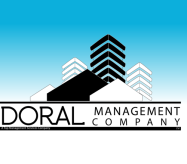Equipment and major components (like the roofs) must be replaced from time to time, regardless of whether we plan for the expense. We prefer to plan and set the funds aside now. Reserve funds aren’t an extra expense—they just spread out expenses more evenly. There are other important reasons we put association monies into reserves every month: “Whether or not” to me is like “over” to you (and me). 1. Reserve funds meet legal, fiduciary, and professional requirements. A replacement fund may be required by: Any secondary mortgage market in which the association participates (e.g., Fannie Mae, Freddie Mac, FHA, VA). State statutes, regulations, or court decisions. The community’s governing documents. 2. Reserve funds provide for major repairs and replacements that we know will be necessary at some point in time. Although a roof may be replaced when it is 25 years old, every owner who lives under or around it should share its replacement costs. 3. Reserve funds.
more info
No comments
Finances/reserves




